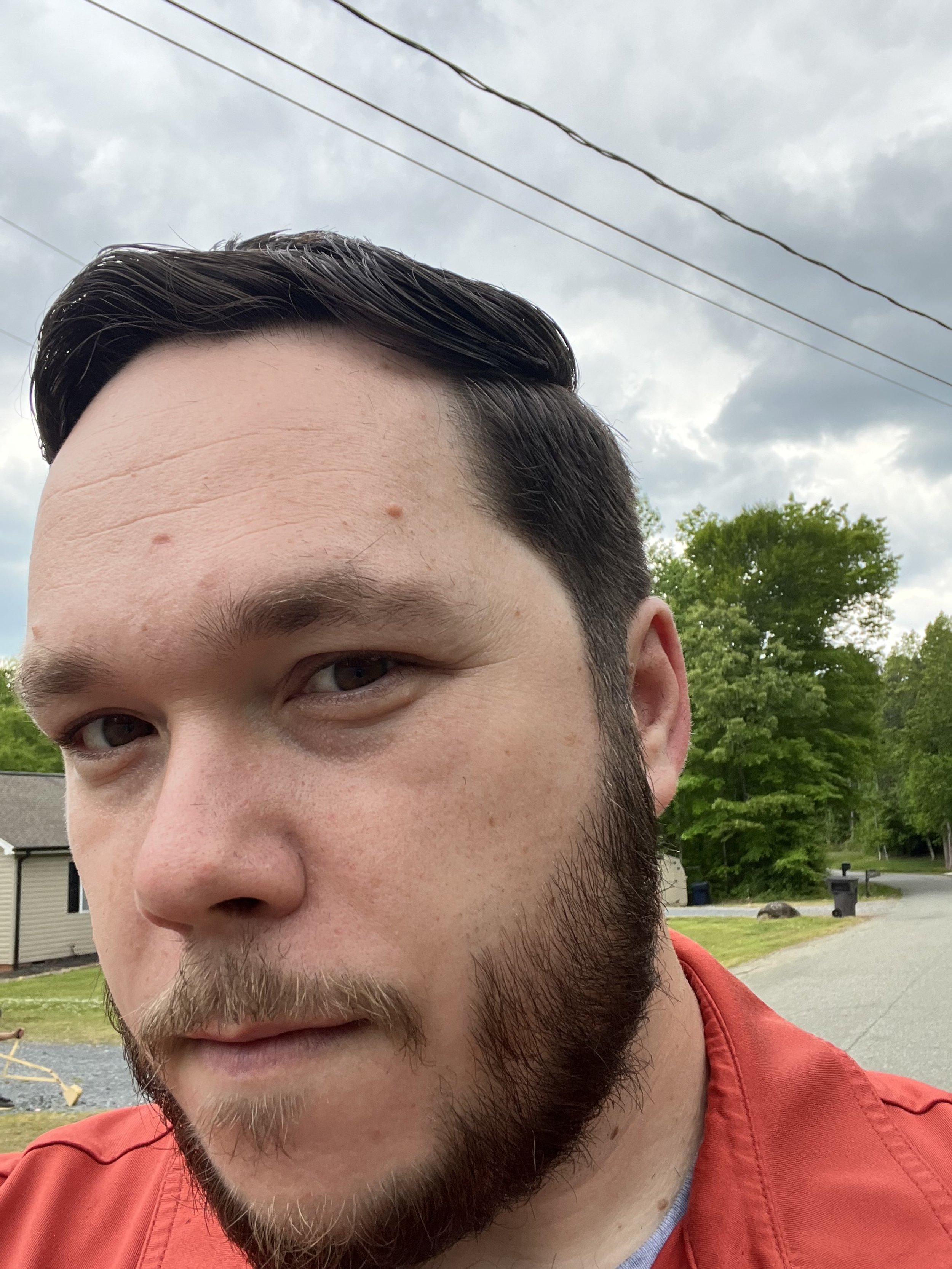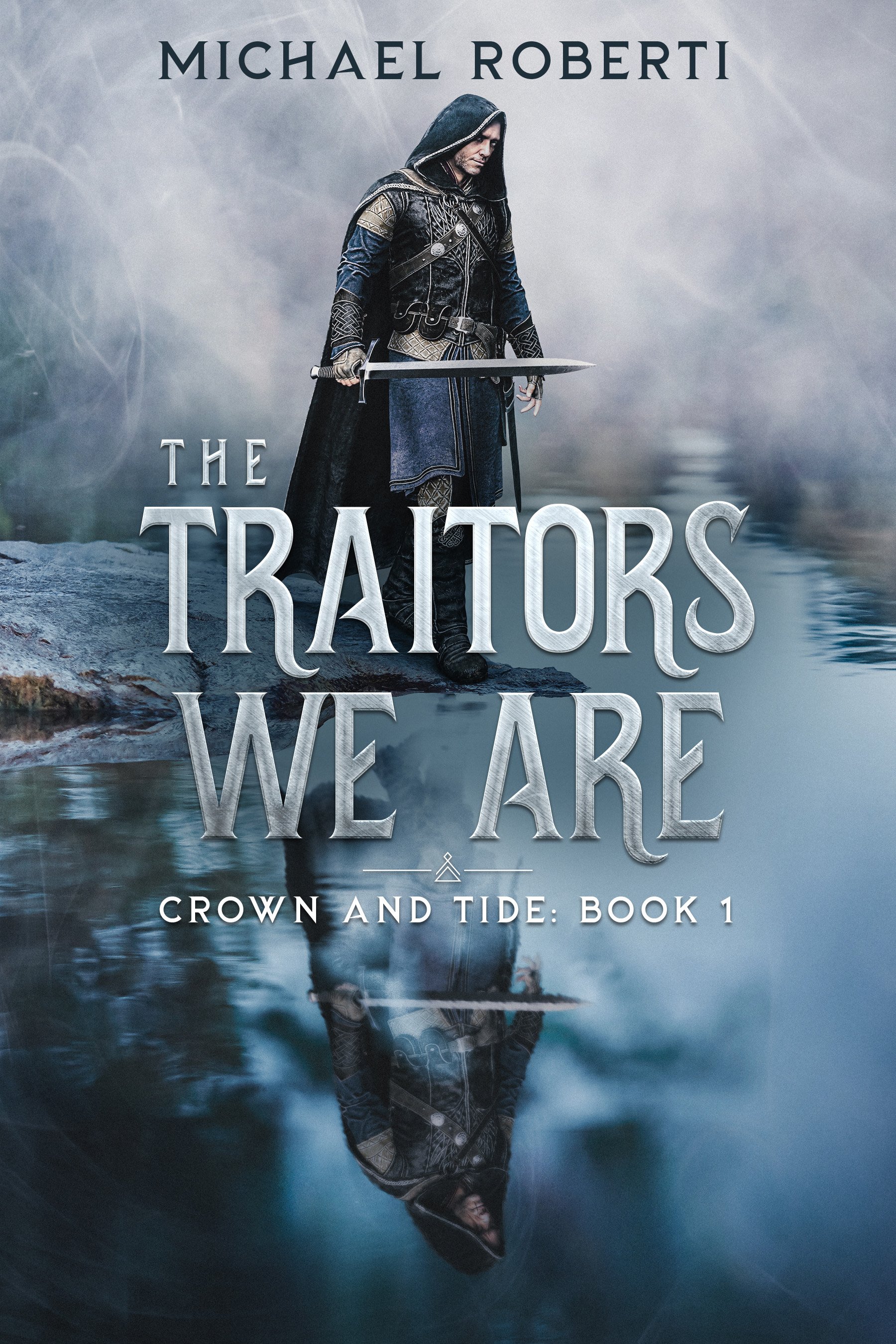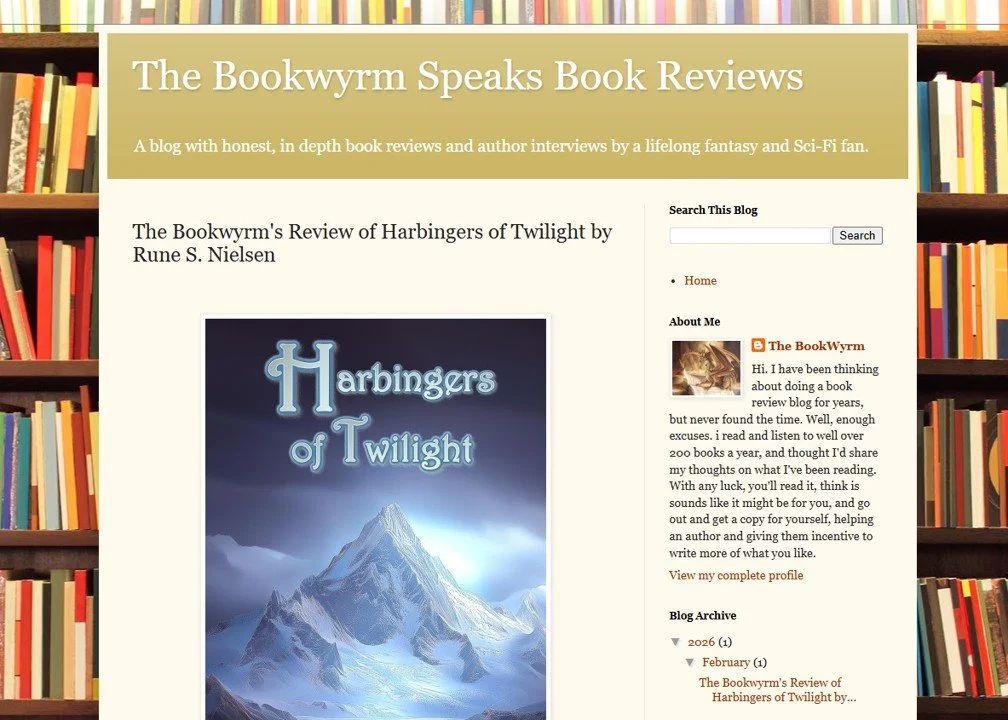I was lucky to get an interview with Michael Roberti, the author of The Traitors We Are, one of this year’s #SPFBO9 entries.
Please, tell us a bit about yourself…
Hey, I’m Michael Roberti, an indie author living in North Carolina in the United States. I wrote a book called The Traitors We Are and recently released a prequel novella, The Revenge of Thousands. When I’m not writing, I teach High School English and spend time with my wife and kids.
Why should I buy your SPFBO9 entry?
Do you ever wonder how we know the things we know about the world? Imagine if that was more uncertain, and every time a life was lost everything that person ever wrote was gone. That’s some of the stakes of my book. The Traitors We Are is set during a rebellion built on lies, and the further in the story goes the more moving parts there are.
What got you into writing? And how long have you been doing it?
I’ve written on and off my whole life, but probably the thing that most got me into writing was reading other fantasy writers. That and telling stories through Dungeons and Dragons. Other than a book I wrote and scraped in 2015, The Traitors We Are is my first completed project.
Have you participated in the SPFBO before and where did you hear about the competition?
I haven’t, but I heard about it on Twitter and my anticipation grew as I became friends with former and returning contestants.
Why did you choose to write fantasy?
I like the idea of telling stories where the characters are similar to people we know, but they are dealing with things that are both familiar and also extraordinary. The writing disappearing aspect of my story lets me look at familiar themes in new ways.
Which other author has had the biggest influence on your writing?
I think the three biggest are: Hemingway, Vonnegut, and Ishiguro. Not that I think I write like them—I don’t. But I think I adopted a lot of their philosophies of what makes a good book and how to tell a story. I’m not where I want to be yet but I want to capture the beautiful simplicity of Hemingway, the urgent humanity of Vonnegut, and the inevitable and subjective elements of Ishiguro.
If you were to win the SPFBO, what impact do you think this would have on your writing career?
Honestly, I don’t know. I hadn’t thought that far ahead. I didn’t expect The Traitors We Are to do as well as it has. Once I realized it was going well, I moved my timeline up and adjusted my expectations. I expect if I were to win (if I don’t die from shock) I will be forced to change my expectations and adjust my timeline again.
What challenges did you face during the writing or publishing process, and how did you overcome them?
The only part that was really a challenge was when I started the querying process. I spent so little time on it and couldn’t ever make myself sit down and send out more. I hated it. Even though gaining visibility and marketing is hard, at least there is tangible proof I’m getting somewhere.
Do you have any tips or an author app, tool, or resource that you can really recommend we try?
My cleaning up process involves: Hemingway app (I don’t take all of its suggestions, but I like to see what it thinks is difficult and if I have too much passive. Then I listen to every chapter read out loud by an app and take notes. I go back and fix things. Do a final pass or two with grammarly. Usually this works very well.
“I’m working on rewriting the novel I wrote in 2015. I changed the protagonist to a teenage girl and it’s more YA dark fantasy. I like to say it is Wandavision meets The Witcher as far as concept, and borrowing ideas from Ishiguro on how to create narrative unreliability.”
And now it's time to yank out your Palantir! Let’s talk about the future. What new projects are you working on?
I’m working on rewriting the novel I wrote in 2015. I changed the protagonist to a teenage girl and it’s more YA dark fantasy. I like to say it is Wandavision meets The Witcher as far as concept, and borrowing ideas from Ishiguro on how to create narrative unreliability. I haven’t done much with it yet, but I have plans. I’m also working on the follow up to The Revenge of Thousands and The Traitors We Are, A Grave for Us All.
Do you have any dreams you’d like to share?
Oh yes. Netflix show. Tabletop RPG or supplements to Dungeons and Dragons. A special edition of my book when I die that is only blank pages. The list goes on.
That was some interesting answers. I wish you the very best in the SPFBO. I hope a lot of readers discover your writing. Thanks for doing the interview.




